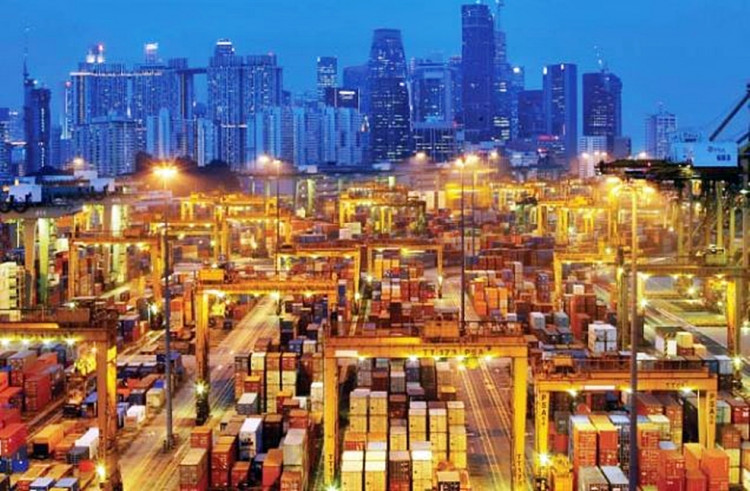Trump's trade war is slowing down the erstwhile robust growth of Singapore's economy.
The Ministry of Trade and Industry (MTI) reported slower than expected growth for the third quarter of the year and, as a consequence, revised downwards its GDP growth estimate for the full year 2018. Singapore's economy grew 2.2 percent in the third quarter year-on-year, which was below market expectations of a 2.4 percent expansion.
Actual growth was also lower than the preliminary estimate of 2.6 percent and the upwardly revised 4.1 percent print in the previous quarter, according to MTI's third quarter Economic Survey of Singapore.
MTI said it was the slowest growth rate in eight quarters.
It said the country's moderate growth was mainly caused by the strength of the manufacturing sector, which grew 3.5 percent (as against an estimate of 4.5 percent) after a 10.7 percent expansion in the previous quarter. Growth was observed in all manufacturing sub-sectors.
On the other hand, services grew by 2.4 percent (vs estimate of 2.9 percent) and vs 2.3 percent in Q2). In contrast, construction extended its slowdown, shrinking 2.3 percent (as against the original -3.1 percent) after falling 4.2 percent in Q2.
The economy's picture for 2019 is not as bright as originally estimated on account of external factors, chief among which is Trump's trade war against the world.
MTI said the Singapore economy is expected to grow by 3.0 percent to 3.5 percent in 2018. Growth in 2019 will even be lower. The growth estimate is from 1.5 percent to 3.5 percent in 2019.
Singapore's annual GDP growth rate averaged 6.63 percent from 1976 until 2018, reaching an all-time high of 19 percent in the second quarter of 2010. On the other hand, growth sank to a record low of -8.80 percent in the first quarter of 2009.
MTI said the deceleration in Singapore's economy to between 1.5 percent and 3.5 percent in 2019 will be partly due to the impact of Trump's trade war on China.
Singapore's external demand outlook will be "slightly weaker" in 2019 compared to this year, while global economic risks are tilted to the downside, estimates MTI permanent secretary Loh Khum Yean. Loh emphasized the loss of global business and consumer confidence due to the escalation of the trade war as the most serious risk factor.
Should the trade war worsen (which it likely will), "global investment and consumption spending would decline, with adverse impact on economic growth."
He said there could be further drawdowns in investment and consumption growth. These negative factors might infect the rest of the region if there is a faster-than-expected tightening of global financial conditions.






